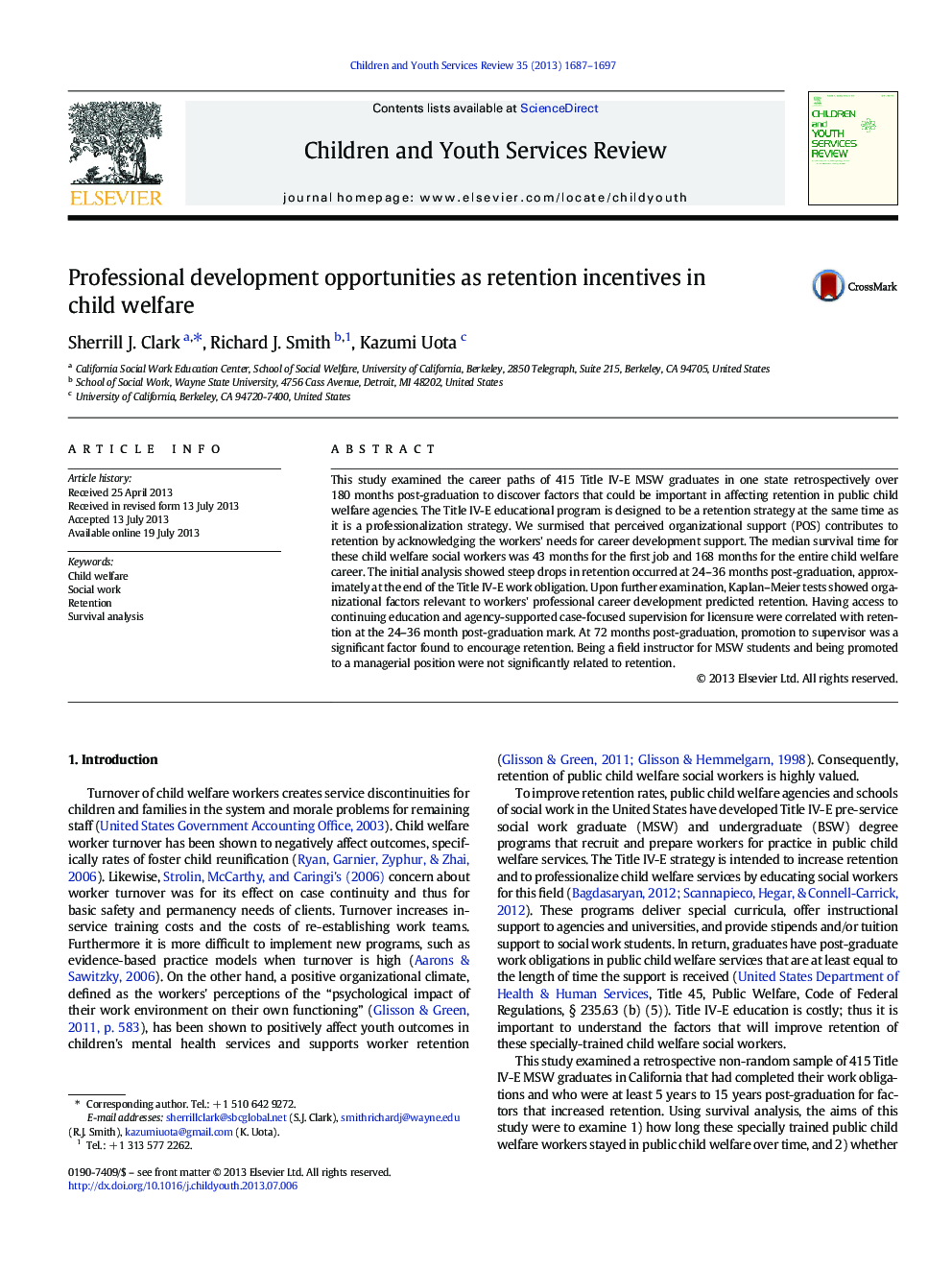| Article ID | Journal | Published Year | Pages | File Type |
|---|---|---|---|---|
| 346065 | Children and Youth Services Review | 2013 | 11 Pages |
•We examined career paths for child welfare MSWs over time.•Promotion to supervisor and access to training encouraged retention.•Agency support for case-focused supervision for licensure encouraged retention.•Promotion to manager or administrator was not associated with retention.•Being a field instructor did not encourage retention.
This study examined the career paths of 415 Title IV-E MSW graduates in one state retrospectively over 180 months post-graduation to discover factors that could be important in affecting retention in public child welfare agencies. The Title IV-E educational program is designed to be a retention strategy at the same time as it is a professionalization strategy. We surmised that perceived organizational support (POS) contributes to retention by acknowledging the workers' needs for career development support. The median survival time for these child welfare social workers was 43 months for the first job and 168 months for the entire child welfare career. The initial analysis showed steep drops in retention occurred at 24–36 months post-graduation, approximately at the end of the Title IV-E work obligation. Upon further examination, Kaplan–Meier tests showed organizational factors relevant to workers' professional career development predicted retention. Having access to continuing education and agency-supported case-focused supervision for licensure were correlated with retention at the 24–36 month post-graduation mark. At 72 months post-graduation, promotion to supervisor was a significant factor found to encourage retention. Being a field instructor for MSW students and being promoted to a managerial position were not significantly related to retention.
